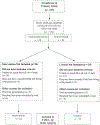School age effects of Minding the Baby-An attachment-based home-visiting intervention-On parenting and child behaviors
- PMID: 32907642
- PMCID: PMC11956164
- DOI: 10.1017/S0954579420000905
School age effects of Minding the Baby-An attachment-based home-visiting intervention-On parenting and child behaviors
Erratum in
-
School age effects of Minding the Baby-An attachment-based home-visiting intervention-On parenting and child behaviors - ERRATUM.Dev Psychopathol. 2021 Feb;33(1):376. doi: 10.1017/S0954579420001923. Dev Psychopathol. 2021. PMID: 33616032 No abstract available.
Abstract
Multiple interventions have been developed to improve the caregiver-child relationship as a buffer to the effects of early life adversity and toxic stress. However, relatively few studies have evaluated the long-term effects of these early childhood interventions, particularly on parenting and childhood behaviors. Here we describe the early school-age follow-up results of a randomized controlled trial of Minding the Baby ® (MTB), a reflective, attachment-based, trauma-informed, preventive home-visiting intervention for first-time mothers and their infants. Results indicate that mothers who participated in MTB are less likely to show impaired mentalizing compared to control mothers two to eight years after the intervention ended. Additionally, MTB mothers have lower levels of hostile and coercive parenting, and their children have lower total and externalizing problem behavior scores when compared to controls at follow-up. We discuss our findings in terms of their contribution to understanding the long-term parenting and childhood socio-emotional developmental effects of early preventive interventions for stressed populations.
Keywords: child problem behaviors; home visiting; mentalization; parenting; reflective functioning.
Figures
References
-
- Allen J. (2012). Mentalizing in the development and treatment of attachment trauma. London: Karnac.
-
- Baumeister RF, Bratslavsky E, Finkenauer C, & Vohs KD (2001). Bad is stronger than good. Review of General Psychology, 5, 323–370. doi:10.1037/1089-2680.5.4.323 - DOI
Publication types
MeSH terms
Grants and funding
LinkOut - more resources
Full Text Sources
Medical


